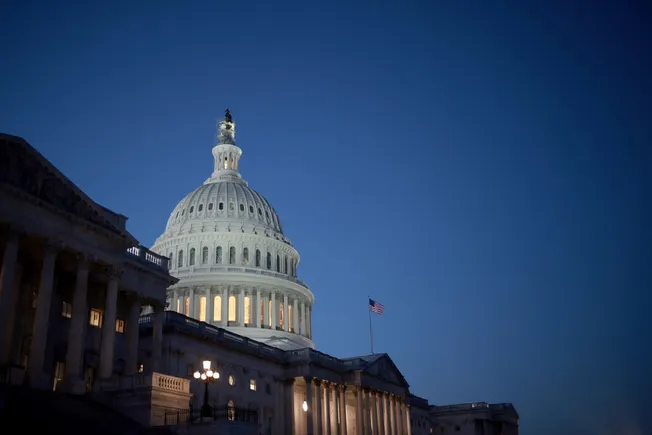Dive Brief:
Providers could lose more than $770 billion in revenue over the next decade if the budget reconciliation bill passed by the House of Representatives is signed into law, according to a new analysis.
The drop is spurred by the estimated 12 million people who would lose Medicaid and Affordable Care Act coverage due to healthcare provisions in the GOP megabill.
Hospitals would lose $306 billion over a decade, the largest revenue hit among provider groups, according to the left-leaning think tank the Urban Institute’s report, which was funded by the Robert Wood Johnson Foundation. Hospitals would also face a significant increase in uncompensated care, given they’re required to provide medical services to patients regardless of insurance status.
Dive Insight:
The Senate is currently reviewing President Donald Trump’s “big, beautiful bill” after the legislation was passed by the House earlier this month.
The bill, which Republicans are advancing under a process called reconciliation, would enact a number of GOP priorities, including cracking down on the U.S. border, ending clean energy initiatives and extending tax breaks from Trump’s first term.
The legislation, which would increase the deficit by roughly $2 trillion, funds some of the initiatives in part through major cuts to the safety-net Medicaid program, which currently provides health insurance to some 80 million Americans along with its sister program for children.
The bill would cut roughly $700 million in federal Medicaid spending, in part by creating new requirements for beneficiaries to log work, volunteering or education hours with their state. The resulting bureaucratic thicket would lead many Medicaid members to lose coverage not due to actual ineligibility, but because of difficulties with the paperwork, according to experts.
Roughly 8 million people are expected to become uninsured as a result of the bill’s Medicaid provisions, according to estimates from the Congressional Budget Office, a nonpartisan scorekeeper.
Another 4 million people would lose ACA coverage from policies restricting enrollment in the marketplace plans set up by the Obama-era law.
Republicans say the reforms are necessary to eliminate fraud, waste and abuse in the healthcare programs, and redirect subsidized insurance toward America’s neediest populations.
But the resulting increase in America’s uninsured rate will lead to worse medical outcomes and higher care costs for many patients, experts say. In addition, coverage losses will have a negative downstream impact on providers that could cause some practices, especially in rural and low-income areas that already struggle with insufficient reimbursement, to shutter services or close entirely.
For instance, 700 rural hospitals — one-third of all rural hospitals in the country — are already at risk of closing due to financial pressures, according to a recent report from the Center for Healthcare Quality and Payment Reform.
Many providers also struggle with high levels of uncompensated care, when uninsured patients are unable to pay for their medical treatments. Some uncompensated care is funded by federal, state and local programs, while some costs are simply eaten by providers.
Republicans’ spending bill would increase uncompensated care by $198 billion over the next decade, according to the Urban Institute’s report.
“The magnitude of the proposed federal funding cuts to Medicaid will devastate patients in need of care and the hospitals and clinics that serve them,” Katherine Hempstead, the RWJF’s senior policy adviser, said in a statement. “These cuts would inevitably lead to hospitals and clinics closing, especially in rural areas — hurting local economies and reducing access to care for everyone, including people with private insurance and Medicare.”
The financial ramifications for providers would worsen if Congress allows more generous subsidies for ACA plans to expire, according to the report. The subsidies, which are credited with helping millions of Americans afford marketplace coverage, are scheduled to run out at the end of this year.
Democrats support continuing the enhanced premium tax credits, but Republicans have raised concerns about the stress on federal taxpayers and the potential for fraud, waste and abuse in marketplace plans as enrollment continues to swell.
If the subsidies expire, provider revenues would drop more than $1 trillion over the next decade, and almost 16 million people would become uninsured, the Urban Institute projects.
Again, hospitals are projected to absorb the biggest revenue losses. Uncompensated care would rise by $278 billion over the next decade, per the report.
Providers could lose upwards of $1 trillion in revenue from proposed actions in Washington
Projected decline in healthcare provider revenues from reconciliation bill and expiration of ACA enhanced tax credits, 2025-2034
The legislation is expected to be tweaked in the Senate, where some Republicans appear wary about the proposed cuts to Medicaid. There would likely be political blowback if seismic reform to the safety-net program goes through, given that many of the counties that would be hardest hit by cuts to Medicaid are in deep-red states.


